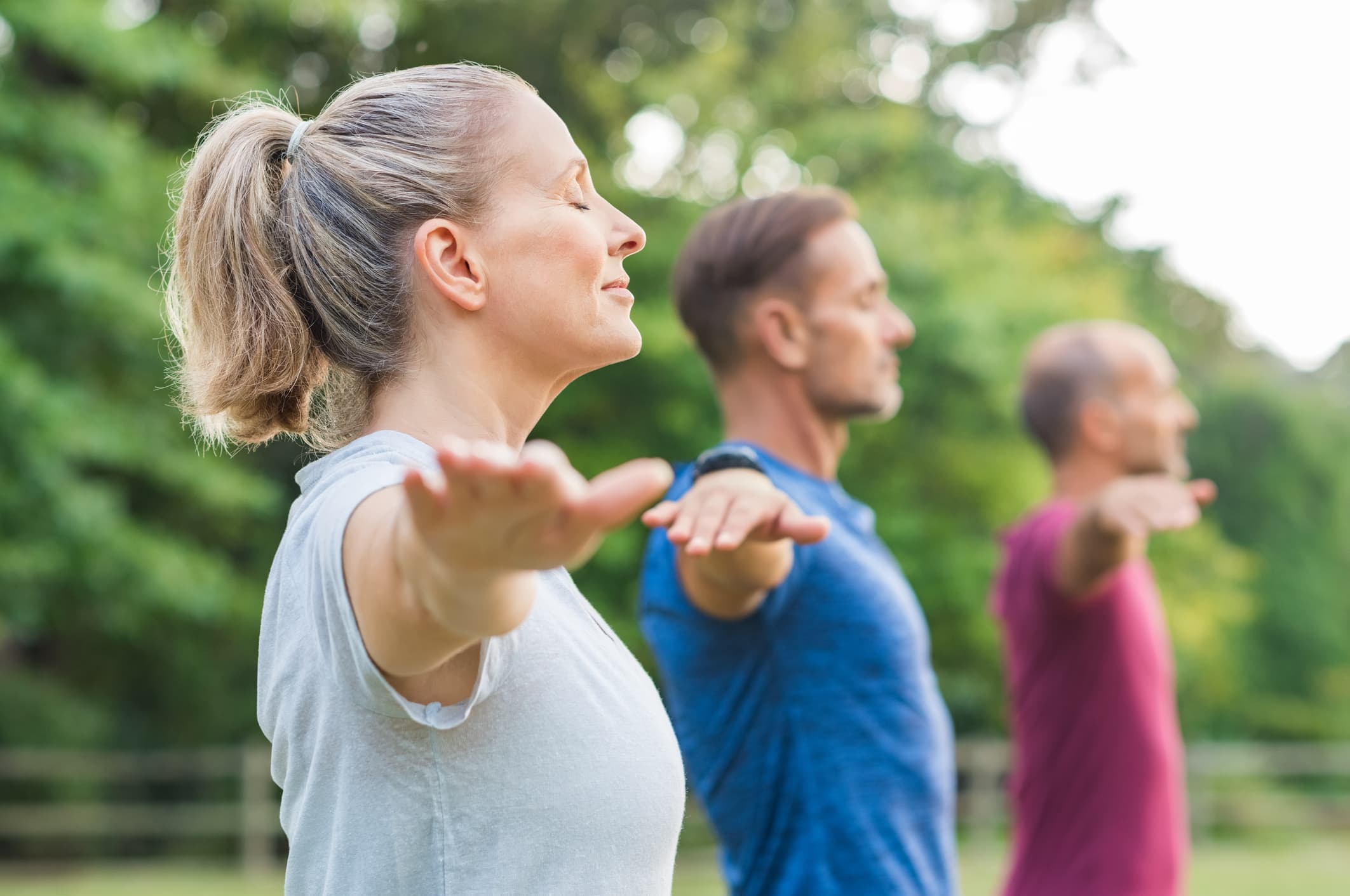Although the term “Mindfulness” often invokes an image of a monk sitting on a mountain chanting “OM,” neuroscience is proving this ancient practice is worthy of exploring today. Your true power lies in this moment. If you understand who you are and your emotional processes you live not only an authentic life but also an empowered one.
Mindfulness is really a brain thing and could also be referred to as attention training. Mindfulness means to pay attention on purpose in a particular way and to do so without passing judgement. It means to be aware of your thoughts, feelings, and sensations and still be at peace in that moment. Some of the core practices include; mindful breathing, mindful listening, loving kindness, mindful eating, mindful walking, journaling, gratitude, affect labelling/mindful emotions, and a body scan.
Pause for a moment. Feel the sensation of air through your nostrils. Is it warm or cool? Notice the rise and fall of your chest. Is there resistance or ease? Bring your awareness to expansion and contraction of your abdomen. Do you feel your clothing? Notice thoughts, notice sensations, notice sounds. Now, choose one of these and practice paying attention to your breath for 2 minutes.
Whenever your mind wanders bring it back to your breath. We all have thoughts. The goal is not to control the mind but rather not allow it to control you. Make note of how you feel. You have just started mindful breathing by paying attention to your breath on purpose. You are always breathing so you can always practice.
In 1979 Jon Kabat-Zinn (PhD, scientist, writer, professor, Founder of MBSR and often referred to as the Godfather of Mindfulness) put Mindfulness on the map in the western world when he founded the Mindfulness Based Stress Reduction program at the University of Massachusetts. The program was developed for chronically ill patients that were not responding well to traditional methods and has been highly successful.
Essentially Jon Kabat-Zinn took the Buddhism and Voodoo Woo-doo out of Mindfulness Meditation when he created the program. He said; “I bent over backwards to structure it and find ways to speak about it that avoided as much as possible the risk of it being seen as Buddhist, new age, eastern mysticism, or just plain flakey.”
Since that time neuroscience has shown us compelling evidence suggesting a regular Mindfulness Meditation practice leads to chemical and structural changes in the brain that allow for you to experience the benefits. One of my favourite studies is from Sara Lazar who is a Harvard neuroscientist who accidentally came across mindfulness and experienced such profound benefits that she did her own studies and now teaches mindfulness herself.
Mindful Schools of California (and many other industry leaders) teach the neuroscience of mindfulness. Mindfulness practices deactivate the part of your brain responsible for stress (amygdala) which in turn allows you access to the part of your brain responsible for all higher levels of thinking (pre-frontal cortex).
There are 9 aspects of wellbeing that are developed through a mindfulness practice/attention training/pre-frontal cortex activation: bodily regulation, insight, attuned communication, empathy, emotional regulation, fear modulation, response flexibility, intuition, and morality. (Gratitude may make this list soon).
You can begin to see where the aspects of wellbeing developed could lead to things such as increased confidence, greater compassion and empathy, improved health, more fulfilling relationships, higher creativity, effective communication, higher success rates, and happier daily living.
Mindfulness equates to self-awareness. They are essentially the same thing. One domain of emotional intelligence is self-awareness. You can’t accurately know yourself if you do not know and understand your emotional processes.
Emotional Intelligence may be defined as the ability to recognise, understand and manage our own emotions and recognise, understand, and influence the emotions of others.
Often referred to as “practicing the pause” you can pause as you did with breathing and make a more conscious choice. With continued practice you will develop higher levels of emotional intelligence you will begin to intuitively respond to people and situations as opposed to reacting emotionally. Imagine how many arguments you will save and how much less regret and guilt you will feel?
This is truly a space of self-empowerment where you have the opportunity to think, speak, and act in line with your values. This is where you have the ability create change, be authentic, and live intentionally.
The beginning of emotional intelligence begins with naming what you are feeling and then being able to feel it in your body and then being able to ask compassionate questions that help move you through. What you resist persists so if you don’t tend to your emotional wellbeing, it will wreak havoc on your wellbeing, your success, and your relationships.
There are countless ways to begin to develop emotional intelligence including; all formal mindfulness meditation-based practices as well as self-assessments, journaling, and even gratitude.
The problem that often arises is difficulty in sticking to a practice so it is necessary to make it a priority, schedule it, get help, get a buddy, and be kind to yourself on the journey. Cultivate compassion and curiosity for yourself and the experience. The processes and awareness are the focus not the end result. Enjoy the journey. Remember your power is in this moment.
References:
Meng Tan, Chad, (2012). Search Inside Yourself: The Unexpected Path to Achieving Success, Happiness (and World Peace). New York, New York: Harper
Mindful Schools of California
Mindfulness and Neural Integration: Daniel Siegel, MD at Tedx StudioCityED
www.mbsrtraining.com


